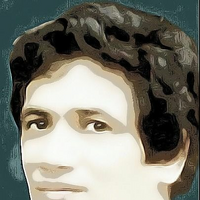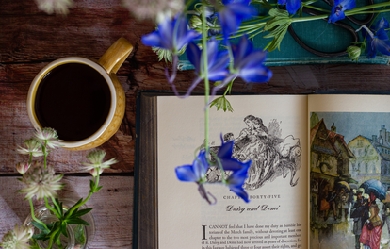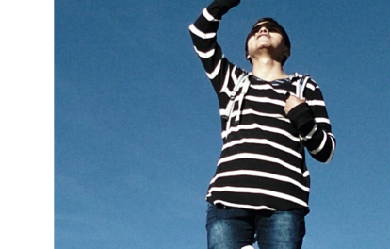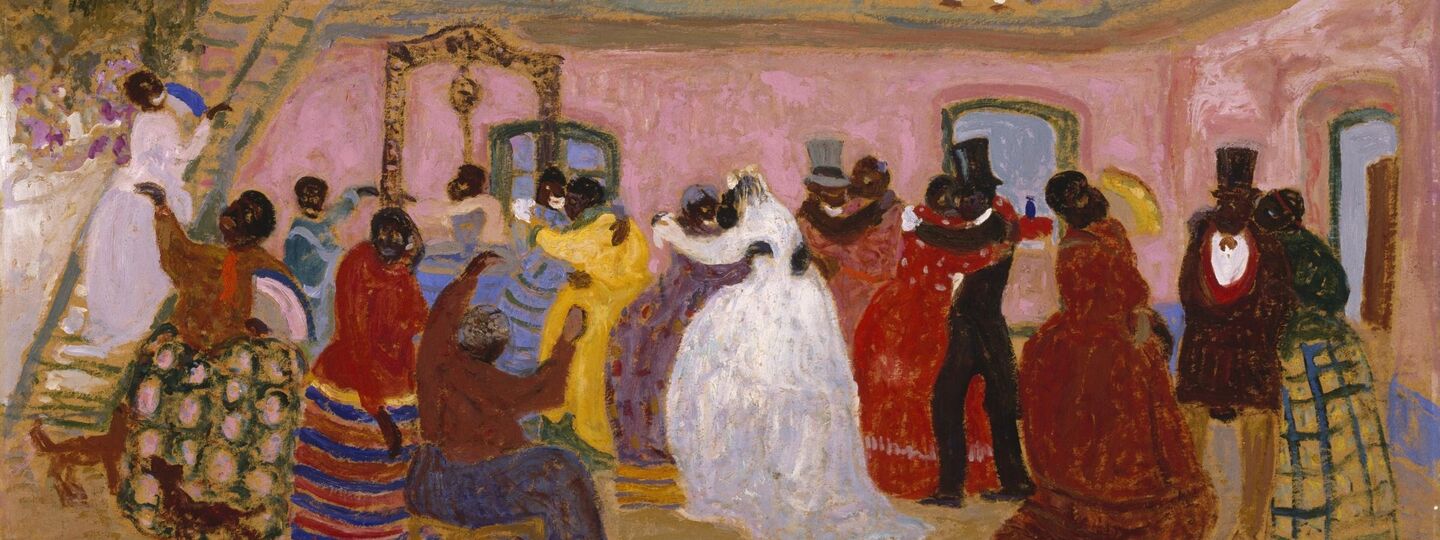
Info
Via per la luna di miele
Pedro Figari
1918 – 1925
The Museum of Fine Arts, Houston
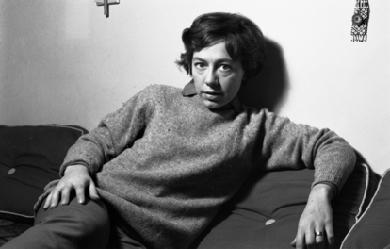
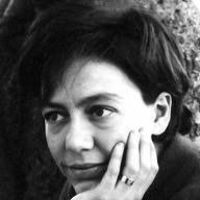
Flora Alejandra Pizarnik (Avellaneda, 29 de abril de 1936 – Buenos Aires, 25 de septiembre de 1972) fue una poetisa, ensayista y traductora argentina. Estudió filosofía y Letras en la Universidad de Buenos Aires y pintura con Juan Batlle Planas. Entre 1960 y 1964, Pizarnik vivió en París, donde trabajó para la revista Cuadernos y algunas editoriales francesas, publicó poemas y críticas en varios diarios y tradujo a Antonin Artaud, Henri Michaux, Aimé Césaire e Yves Bonnefoy. Además, estudió historia de la religión y literatura francesa en La Sorbona. Tras su retorno a Buenos Aires, Pizarnik publicó tres de sus principales volúmenes: Los trabajos y las noches, Extracción de la piedra de locura y El infierno musical, así como su trabajo en prosa La condesa sangrienta.
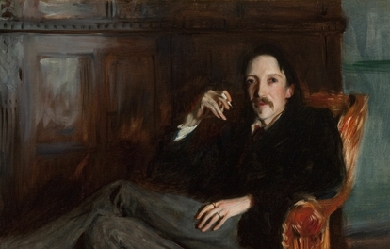
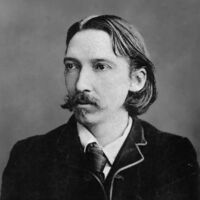
Robert Louis Balfour Stevenson (13 November 1850 – 3 December 1894) was a Scottish novelist, poet, essayist and travel writer. His best-known books include Treasure Island, Kidnapped, and Strange Case of Dr Jekyll and Mr Hyde. A literary celebrity during his lifetime, Stevenson now ranks among the 26 most translated authors in the world. He has been greatly admired by many authors, including Jorge Luis Borges, Ernest Hemingway, Rudyard Kipling, Marcel Schwob, Vladimir Nabokov, J. M. Barrie, and G. K. Chesterton, who said of him that he “seemed to pick the right word up on the point of his pen, like a man playing spillikins”.
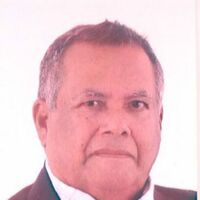
Reinaldo Bustillo Cuevas nació en San Juan Nepomuceno, Colombia, hijo del poeta Ismael Bustillo Angulo y Doña Elena Cuevas Arrieta, hija a su vez del Medico Honoris Causa Don Manuel Cuevas Martínez. Fue profesor de Matemática y Literatura en La Normal Superior para Señoritas Mercedes Elena de Pareja; en la Concentración de Educación Media Diógenes Arrieta; y en el Colegio de Bachillerato Silvia S de Arrieta donde fungió de rector. Fue elegido Diputado a la Asamblea de Bolívar por el partido Nuevo Liberalismo, comandado a nivel nacional por el mártir Luis Carlos Galán Sarmiento. Ha publicado tres poemarios: “Te Espero en la Orilla del Recuerdo”; “Migajas de Amor” y “El Cielo de mi Tierra es Diferente”; un ensayo: “Diógenes Arrieta, Guerrero de la Pluma y la Palabra”; es autor de numerosos poemas, cuentos y ensayos, publicados en Revistas Nacionales y Extranjeras; colaborador del diario “La Libertad de Barranquilla”; de “El Espectador” de Bogotá”; Letra Digital” del Uruguay; Symbolos de México D.F; “Comparto mi Cultura” de Argentina; ha sido traducido al portugués por Urda Alice Klueger; referenciado por Jaime González Sánchez catedrático de la Universidad Santa Cruz de la Sierra de Bolivia por el Trabajo “Moral Antropológica“; lector invitado varias veces por la Radio La Quebrada de Argentina en el “Programa Una Noche Inolvidable”; Mención Especial de SADE (Sociedad Argentina de Escritores), con el soneto Mi Terruño, dedicado a San Juan Nepomuceno, en el Concurso Internacional del Soneto en Dolores; Miembro del Club Internacional de Escritores “Palabra sobre palabra” de España, donde fue Creador del “ Grupo Amantes del Soneto”, adscrito al Grupo PsP y designado como profesor de CEL ( Centro de Estudios Literarios). Obtuvo el primer lugar en el Concurso Internacional de “Un Soneto Para Soria- España”, convocado por “Amistad Numancia” con el propósito de exaltar los méritos heroicos de Numancia, ciudad celtibera, que no pudo ser tomada por las armas del Imperio Romano en el sitio que le infligió en el 133 antes de Cristo , sino que únicamente por un asedio de dieciocho meses se doblegó ante seiscientos mil legionarios, bajo el mando del nieto del Escipión el Africano, Publio Cornelio Escipion Emiliano. Aceptado como Miembro de SELAE (Sociedad de Escritores Latinoamericanos y europeos) con sede en Milán- Italia y de donde es colaborador; y Embajador ante los Escritores Colombianos. Últimamente fue aceptado como colaborados del Blog Corazón del verbo de Sevilla- España, donde publico el soneto “El COLIBRÍ” Y DE LA Revista ALDABA de Sevilla- España. EL CIELO DE MI TIERRA ES DIFERENTE Por Jocé Daniels García El Cielo de mi tierra es diferente es uno de los buenos libros de poesía que en los últimos tiempos ha caído, por voluntad de las musas, en mis manos, y como todos los libros de Reinaldo Bustillo Cuevas lleva el estigma indeleble de quien a través de los años conoce las leyes de la poesía clásica y sabe cuál es la música, el tono y la melancolía que debe llevar un verso libre. Desde los primeros poemas fluye ese remolino lírico y entonces observamos que detrás de bambalinas, las metáforas ocultan un código referido a San Juan Nepomuceno. Demuestra como todo buen aeda que cuando quiere algo lo imagina, lo crea y lo eterniza con su pluma, donde lentamente aparece el ingenio y la imaginación, la gracia y la fantasía, la sutileza y el conocimiento de la naturaleza humana, como un hijo de aquellos campos florecidos, como un hijo del espíritu errante de Trino el brujo el cantor de los Montes de María. El Soneto como la máxima expresión del género poético, desarrollado por los poetas castellanos desde Félix Lope de Vega Carpio hasta el caballero del Soneto, don Miguel Rasch Isla, y que en nuestro país ha tenido tantos seguidores, también tiene un espacio en la poética de Bustillo Cuevas. Son Sonetos de Mentira en donde surge una poesía límpida que consolida su estilo personal y como las flautas al viento que cantan el preludio al trinar de los pájaros, Bustillo Cuevas, con sus marcadas influencias piedracielistas, modernistas y románticos pergeña una poesía que se gesta en una realidad vivida, con nombres propios y compromete el paisaje del San Juan de sus recuerdos, su entorno humano y lo viste con las mejores galas de la belleza natural. Conocí a Bustillo Cuevas en las mismas circunstancias en que se conocen todos los poetas de este mundo, una tarde de otoño cuando nos disponíamos a develar los secretos enterrados en una de las criptas del viejo mausoleo donde se decía estaban los versos más bellos de Diógenes Arrieta y que había escrito en tiempos en que las doncellas que buscaban destino con sus multicolores miriñaques coqueteaban muy cerca de donde estaban los otrora empresarios del tabaco. Desde aquellas lluvias hasta nuestros días me he deleitado con sus poesías, bellas tristes, alegres y frescas, libres de estridencias y ambages retóricos, cuyos antecedentes se encuentran sumergidos en otros grandes poetas de San Juan Nepomuceno. Sus versos contrastan con la poesía frívola, cursi y floja de algunos poetas de nuestro tiempo que en medio de la manigua de una ciudad tan anquilosada en material cultural como Cartagena surgen como una gran cártel con sus turiferarios y corifeos para conformar una sociedad de elogios mutuos y así endilgarse epítetos sonoros y coronarse de laurel y presentarse en el panorama intelectual como la pléyade de los elegidos. Organizan concursos y eventos y como en la corrompida Roma de Nerón tocan la lira del triunfo, se ríen de sus propias pilatunas, y al igual que los zoilos de la desgracia, bautizan y excomulgan, pontifican con sus poesías tan débiles que se desgranan en el cernidor de la crítica para quedar regados en el solar de los infortunios. He ahí la diferencia. Bustillo Cuevas con sus versos libres ruge y avasalla, sin facilismo o ilusorios, sin la veleidad cotidiana que ha invadido los fértiles campos de la poesía. En El Cielo de mi tierra es Diferente nos topamos con versos acrisolados que se riegan en el ambiente como un ramillete multicolor y dejan efluvios agradables al espíritu. Gracias a Dios y a Trino el Brujo, aún quedan buenos aedas. Benéfica influencia del soneto en la poesía Libre Artes, Artes literarias, Poesía Rafael Núñez Moledo, poeta autor del Himno Nacional de Colombia y Presidente de le Republica, alguna vez dijo: El cerebro mana el pensamiento como la caña miel. Sin justificar la verdad científica de esta expresión quiero tomar el fundamento metafórico del mensaje para colegir con él, que cada vez que el hombre se expresa, lo hace en armonía con lo que abunda en su cerebro; y que, por lo tanto, el poeta cuando habla hace poesía. Le oí decir a alguien, en alguna ocasión, que poesía es el modo natural de expresarse el vate. Todo lo anterior para decir que la Poesía Libre, como su mismo nombre indica, es poesía; y afirmar, sin el más mínimo temor de desacertar, que en esta forma de poesía se han escrito piezas trascendentales de la Poesía Universal. Pero pido licencia para hacer algunas elucubraciones, de las que respondo sin comprometer a ninguna Escuela y menos a algún autor, sobre lo que considero justificó, en parte, la poesía Libre. Séame así mismo permitido hacer uso de un símil para encontrar el sendero expedito que me conduzca a demostrar la hipótesis que pretendo exponerles. Imaginemos a un malabarista, que cansado de aumentar el número de objetos que lanza, al aire, describiendo un arco, para recibirlos con la otra mano, resuelve tomar objetos de diferentes pesos, ya sea por su tamaño o por el peso específico de los materiales de que hace uso. El público que observa, se siente incapaz de distinguir a simple vista el peso relativo de cada uno de los objetos que forman el arco armonioso del artista. Así el poeta que cansado del isosilabismo resuelve versificar con versos anisosilábicos, no olvida nunca el ritmo, que es en esencia un retomar el concepto griego del uso de los pies, concepto este merecedor de suma atención, para comprender la musicalidad de cada idioma. Decimos, pues, que la poesía versolibrista, consistió en sus orígenes, en el abandono del isosilabismo, pero cada vez que hizo uso de un verso de determinado número de sílabas, su autor se sintió comprometido a cumplir con el ritmo propio de él, no es pues prosa escrita en renglones cortos; recordemos que el verso es un renglón con medida; la libertad a la que alude el término no debe entenderse como despreocupación de la musicalidad, que es condición constitutiva del verso. Es célebre la advertencia, en este sentido, de Machado: Verso libre, verso libre, líbrate mejor del verso cuando te esclavice. Resumiendo diremos que el versolibrismo emplea el verso anisosilábico, pero que cada vez que hace uso de uno cualquiera, está en la obligación de respetar y acatar su ritmo, distribución de acentos, de la manera como la naturaleza del verso en particular requiera. Aquí es donde viene la influencia benéfica del Soneto en la Poesía Libre, en cuanto que estando el soneto sometido a una estricta distribución de acentos, enseña al poeta versolibrista a cumplir este requisito que enriquecerá y hermoseará su verso. Podemos decir, sin el mínimo riesgo de error, que el experto en escribir sonetos tendrá la habilidad de escribir versos libres más rítmicos Por otro lado los poetas que escriben versolibrismo no deben olvidar que la exoneración que se les brinda en cuanto a la rima y al número de sílabas no llega nunca, no puede llegar, a liberarlo del ritmo, pues su producción dejaría de ser verso y se convertiría en prosa; prosa poética si se quiere, pero prosa. El poema Libre, para que quede cabal, exige cadencia, ritmo interno y musicalidad, atributos que vienen dados en formas diferentes que en el soneto , o en general, en la poesía isosilábica. En todo caso el verso libre no es prosa en renglones cortos, es una forma diferente de poetizar, pero que, aunque parezca contradictorio, tiene sus leyes. © Reinaldo Bustillo Cuevas Reinaldo Bustillo Cuevas, después de terminar sus estudios elementales en su pueblo natal, San Juan Nepomuceno, en la Escuela Pública para Varones, entidad única educacional existente en la localidad, para ese entonces, regentada por Don Roque Jacinto Borré Paz, viajó a Cartagena de Indias para asistir a una convocatoria que el Gobierno Central hacía a los estudiantes que aspiraran cursar estudios de Bachillerato. Allí conoció el mar: inmensidad azul, que a las seis de la tarde se salía de su lecho para besarle los pies al sorprendido joven que, sentado en un tronco viejo, no ha podido nunca desgravarlo de su mente y sus amores. Ganó una Beca para el Colegio Nacional Simón Araujo, en Sincelejo actual capital del Departamento de Sucre, pero en esas calendas la segunda ciudad en importancia en el Departamento de Bolívar, donde queda San Juan Nepomuceno. Recién llegado compite en una convocatoria para “El Cuento del Araujo”, con la gratísima sorpresa de salir triunfador con su trabajo “El Beso Amargo”. Para profesores y amigos era sorprendente que un joven con inclinaciones poéticas se destacara además como el mejor estudiante en matemática. Desde entonces estas dos tendencias lo irán marcando para el resto de su vida. Como matemático se destacó, casi de inmediato, como orientador de sus mismos condiscípulos. En el segundo año de Bachillerato por la falta temporal del profesor de matemática y siendo encargado un profesor desconocedor de la materia, se encarga del desarrollo del programa escolar en la materia, bajo el control disciplinario del docente encargado de la asignatura. Durante el resto del bachillerato fue profesor de matemática de sus compañeros e inclusive en algunas ocasiones orientador de alumnos de cursos superiores. Pero su oculta afición hacía la poesía seguía en ascenso, hasta llegar a escribir su primer soneto: Azul. Terminados sus estudios secundarios se traslada a Bogotá a estudiar Ingeniera Civil, pero descuida sus estudios superiores por dedicar la mayor parte de su tiempo a desempeñarse como profesor de literatura, actividad que constituía su principal fuente de ingresos, entonces conoce a una niña que le recuerda, con sus ojos su lejano mar y con su andar a las gacelas de su San juan distante y le dedica el soneto Levedad La fragancia de amor de su sonrisa riega su esplendidez en la mañana, cuando devota llama la campana al santo sacrificio de la misa. Con garbo de gacela, anda de prisa, como emergiendo de una luz temprana que le cede al andar gracia liviana en alígeros pliegues de la brisa. Va pintando de azul con su mirada el tapete de armiño de la nieve, que el frío mañanero patrocina, si burila en el prado su pisada con gracia femenil que, el rastro leve, va inventando el sendero en que camina. Sin concluir sus estudios profesionales regresa a su ciudad natal en calidad de profesor de matemática y de literatura en la Normal Superior “Diógenes Arrieta” y en la “Concentración de Educación Media Departamental, recién establecidas y funda el “Colegio de Bachillerato Silvia S. de Arrieta” donde dictó las asignaturas de literatura y matemática y fungió de rector. Por circunstancia, inesperadas y sorprendentes de la vida, pues nunca había ejercido la actividad política, llega bajo el patrocinio del Líder y posteriormente mártir de la Patria: Luis Carlos Galán Sarmiento a la Asamblea Departamental de Bolívar. No ha dejado nunca de desempeñarse como orientador de las juventudes de la región como guía en literatura. Fue columnista del “Espectador Costa” de Bogotá, y del diario “La Libertad” de Barranquilla durante largo tiempo; y se ha desempeñado como conferenciante en eventos literarios, como presidente fundador de la Casa de la Cultura de San Juan Nepomuceno, y como miembro del “Fondo Mixto para la Cultura del departamento de Bolívar”.
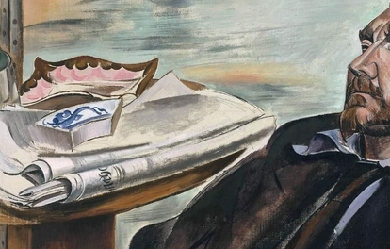
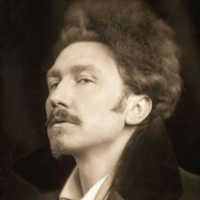
Ezra Weston Loomis Pound (30 October 1885 – 1 November 1972) was an American expatriate poet, critic and a major figure of the early modernist movement. His contribution to poetry began with his promotion of Imagism, a movement that derived its technique from classical Chinese and Japanese poetry, stressing clarity, precision and economy of language. His best-known works include Ripostes (1912), Hugh Selwyn Mauberley (1920), and his unfinished 120-section epic, The Cantos (1917–1969). Working in London in the early 20th century as foreign editor of several American literary magazines, Pound helped to discover and shape the work of contemporaries such as T. S. Eliot, James Joyce, Robert Frost, and Ernest Hemingway. He was responsible for the publication in 1915 of Eliot's “The Love Song of J. Alfred Prufrock,” and for the serialization from 1918 of Joyce's Ulysses. Hemingway wrote of him in 1925: “He defends [his friends] when they are attacked, he gets them into magazines and out of jail. ... He writes articles about them. He introduces them to wealthy women. He gets publishers to take their books. He sits up all night with them when they claim to be dying... he advances them hospital expenses and dissuades them from suicide.”
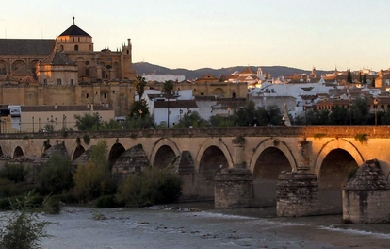
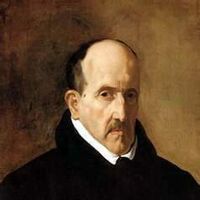
Luis de Góngora y Argote (Córdoba, 11 de julio de 1561 – ibídem, 23 de mayo de 1627) Poeta español. Nacido en el seno de una familia acomodada, estudió en la Universidad de Salamanca. Nombrado racionero en la catedral de Córdoba, desempeñó varias funciones que le brindaron la posibilidad de viajar por España. Su vida disipada y sus composiciones profanas le valieron pronto una amonestación del obispo (1588). Su fama fue enorme durante el Barroco, aunque su prestigio y el conocimiento de su obra decayeron luego hasta bien entrado el siglo XX, cuando la celebración del tercer centenario de su muerte (en 1927) congregó a los mejores poetas y literatos españoles de la época (conocidos desde entonces como la Generación del 27) y supuso su definitiva revalorización crítica.
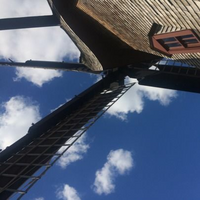
Hello. My name is Mike. I'm a 30something turning 102 this year. I'm the father to an amazing little girl who I'm unable to see as much as I would like, because I was unable to save her from a lifetime of pain. On this page you'll hear me drone on about topics such as this, being a victim of partners and parents with personality disorders, OCD, PTSD, suicidal ideation, and the occasional nonsensical poem about a snail or a garden gnome. There are horrible people in the world, and many of them are inescapable, and most of you would not believe the chaotic hell my life has led me through. But I have always tried to be the sort of person who I wish others would be. It's so much harder to be a bad person than a good person. Given the issues in my life, I might suffer hazards that would prevent me from furthering this message, so let me attempt to do so here. Be a good person. Know that nothing you do will ever change the world, and that all the help you give to others will ultimately be pointless. But that shouldn't stop you from trying to be the best person you can be. Live as altruistically and conscientiously towards others as possible. Hold open doors, be humble, apologize, offer help. If you see someone in need, don't wait for someone else to come along, because they might not. If you see a need, fill a need. Treat others with kindness and fairness, empathy and equity. If you hurt someone, find out how you can prevent yourself from doing so again in the future. Let people in when you're driving, spare some change to panhandlers, defend kids and animals when you see they're in trouble. The meaning of life is progress. Without growth, there can only be decay. It's too late for humanity as a species, but if everyone reading this could just try a little harder, maybe life wouldn't have to be so unfair. I want to take the time to thank those who follow me directly, as well as those who view my poems in passing. It does not go undetected or unappreciated, truly. Thank you for your support. I hope you all find whatever you’re looking for.
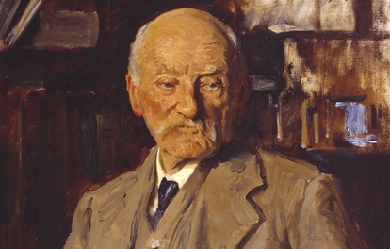
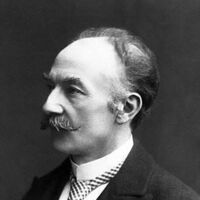
Thomas Hardy (2 June 1840 – 11 January 1928) was an English novelist and poet. While his works typically belong to the Naturalism movement, several poems display elements of the previous Romantic and Enlightenment periods of literature, such as his fascination with the supernatural. While he regarded himself primarily as a poet who composed novels mainly for financial gain, he became and continues to be widely regarded for his novels, such as Tess of the d'Urbervilles and Far from the Madding Crowd. Hardy's poetry, first published in his fifties, has come to be as well regarded as his novels and has had a significant influence over modern English poetry, especially after The Movement poets of the 1950s and 1960s cited Hardy as a major figure.
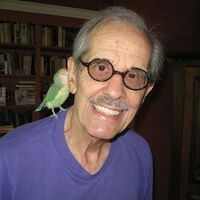
I was born in Hamilton, Ohio, in 1925, a confession that I am an old geezer. I served in the infantry during World War II, was wounded and discharged in 1946. I then obtained a B.A. degree with honors in English in 1949. Subsequently I taught in Cincinnati public schools and at the University of Cincinnati for the next 35 years. My poetry has appeared in: * Wall Street Journal * Hellas * Lyric * Envoi * Midwest Poetry Review (a sonnet won awards) * Aethlon * Light * Poet's View * Classical Outlook * Mind over Matter Several books have been self-published but Wormwood and Whines, a compilation of many of my poems, was published by Superior Books in 1999.
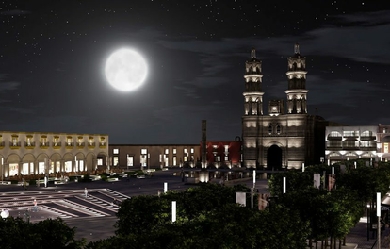

Amado Ruiz de Nervo y Ordaz (Tepic, Distrito Militar de Tepic, Jalisco, República Restaurada, 27 de agosto de 1870-Montevideo, Uruguay, 24 de mayo de 1919), más conocido como Amado Nervo, fue un poeta y escritor mexicano, perteneciente al movimiento modernista. Fue miembro correspondiente de la Academia Mexicana de la Lengua, pero no pudo serlo de número por residir en el extranjero.
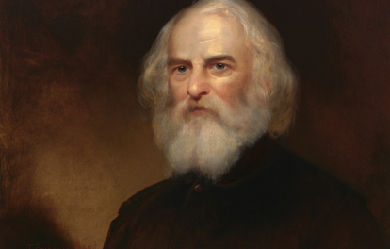
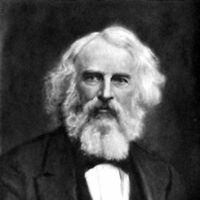
Henry Wadsworth Longfellow (February 27, 1807 – March 24, 1882) was an American poet and educator whose works include "Paul Revere's Ride", The Song of Hiawatha, and Evangeline. He was also the first American to translate Dante Alighieri's The Divine Comedy and was one of the five Fireside Poets. Longfellow was born in Portland, Maine, then part of Massachusetts, and studied at Bowdoin College. After spending time in Europe he became a professor at Bowdoin and, later, at Harvard College. His first major poetry collections were Voices of the Night (1839) and Ballads and Other Poems (1841). Longfellow retired from teaching in 1854 to focus on his writing, living the remainder of his life in Cambridge, Massachusetts, in a former headquarters of George Washington. His first wife, Mary Potter, died in 1835 after a miscarriage. His second wife, Frances Appleton, died in 1861 after sustaining burns from her dress catching fire. After her death, Longfellow had difficulty writing poetry for a time and focused on his translation. He died in 1882.
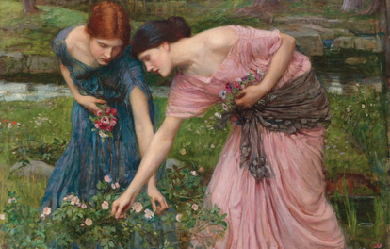
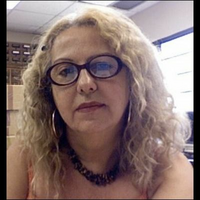
Doris Melo Mendoza,(1948-) Nació en Santo Domingo, República Dominicana. Vive en Puerto Rico desde 1989. Obtuvo un grado de Licenciada en Psicología clínica en 1975 de la Universidad Autónoma de Santo Domingo. En el 2004 obtuvo su maestría en Artes con concentración en Estudios Hispánicos y un Doctorado en Filosofía con concentración en Literatura Hispanoamericana, ambos de la Universidad de Puerto Rico en Río Piedras. Ha publicado numerosos ensayos y artículos en revistas especializadas en literatura en Hispanoamerica y España. Algunos de sus poemas han aparecido en varias antologías como "Pinceladas y relatos (2010), Prosa, poesía y artistas plásticos".(2011), "Antología de mujeres". Ha prologado varios libros como: “Arena, mar y viento”. (2010) del poeta español Teo Revilla Bravo, “La mujer espiral” (2012) de la poeta dominicana Jennet Tineo, “El espacio mítico de la palabra en el desmadejar del tiempo: en el poemario “El ave rasga la memoria” de Valentín Amaro. poeta dominicano.(2014), “Polifonía de voces que se resisten al encuentro de multiples mundos de una conciencia poética”. Del poeta español José Huete García entre otros. Como poeta ha publicado dieciocho libros: Solo de pasión, soledades y otras ausencias en abril del (2010) y El olor de la palabra rota en septiembre del (2011) , Rasgada memoria (2012) En ese espacio de nadie donde gravita la prudencia.(2013), "Donde habita el recuerdo" (2017) , "En esta brevedad que se dispersa "(2017, entre otros. Además escribe crítica literaria. Ha publicado el trabajo crítico sobre teatro: "Mito y tragedia en el teatro hispanoamericano y dominicano del siglo XX" (2011 ) "La agonía, el esplendor y la locura en el arte a través del tiempo" (2018) "El devenir: de lo disoluto a la enajenación en los poetas malditos" (2018) "Ensayos de crítica literaria: prosa y poesía. (2017)" entre otros. Además comparte poemas en : La antología "Rompamos el silencio Amazonas" editado en alemán y español por Katia Japa. Alemania (2014.) Estudió Artes Plásticas: dibujo, pintura, litografía y xilografía. Idiomas: francés, italiano, portugués y latín en la Universidad de Puerto Rico en Río Piedras. Ha sido profesora del departamento de Español y Literatura y Humanidades en Estudios Generales, en las Universidades de Puerto Rico, Recinto de Río Piedras y actualmente enseña en La Escuela de Artes Plásticas de San Juan donde enseña: Redacción, Humanidades y tesina.
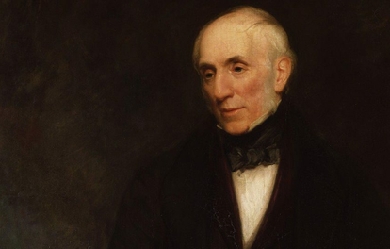
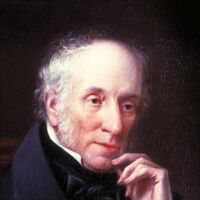
William Wordsworth (7 April 1770 – 23 April 1850) was a major English Romantic poet who, with Samuel Taylor Coleridge, helped to launch the Romantic Age in English literature with the 1798 joint publication Lyrical Ballads. Wordsworth's magnum opus is generally considered to be The Prelude, a semiautobiographical poem of his early years which he revised and expanded a number of times. It was posthumously titled and published, prior to which it was generally known as the poem "to Coleridge". Wordsworth was Britain's Poet Laureate from 1843 until his death in 1850. Early life The second of five children born to John Wordsworth and Ann Cookson, William Wordsworth was born on 7 April 1770 in Wordsworth House in Cockermouth, Cumberland—part of the scenic region in northwest England, the Lake District. His sister, the poet and diarist Dorothy Wordsworth, to whom he was close all his life, was born the following year, and the two were baptised together. They had three other siblings: Richard, the eldest, who became a lawyer; John, born after Dorothy, who went to sea and died in 1805 when the ship of which he was Master, the Earl of Abergavenny, was wrecked off the south coast of England; and Christopher, the youngest, who entered the Church and rose to be Master of Trinity College, Cambridge. Their father was a legal representative of James Lowther, 1st Earl of Lonsdale and, through his connections, lived in a large mansion in the small town. Wordsworth, as with his siblings, had little involvement with their father, and they would be distant from him until his death in 1783. Wordsworth's father, although rarely present, did teach him poetry, including that of Milton, Shakespeare and Spenser, in addition to allowing his son to rely on his own father's library. Along with spending time reading in Cockermouth, Wordsworth would also stay at his mother's parents house in Penrith, Cumberland. At Penrith, Wordsworth was exposed to the moors. Wordsworth could not get along with his grandparents and his uncle, and his hostile interactions with them distressed him to the point of contemplating suicide. After the death of their mother, in 1778, John Wordsworth sent William to Hawkshead Grammar School in Lancashire and Dorothy to live with relatives in Yorkshire; she and William would not meet again for another nine years. Although Hawkshead was Wordsworth's first serious experience with education, he had been taught to read by his mother and had attended a tiny school of low quality in Cockermouth. After the Cockermouth school, he was sent to a school in Penrith for the children of upper-class families and taught by Ann Birkett, a woman who insisted on instilling in her students traditions that included pursuing both scholarly and local activities, especially the festivals around Easter, May Day, and Shrove Tuesday. Wordsworth was taught both the Bible and the Spectator, but little else. It was at the school that Wordsworth was to meet the Hutchinsons, including Mary, who would be his future wife. Wordsworth made his debut as a writer in 1787 when he published a sonnet in The European Magazine. That same year he began attending St John's College, Cambridge, and received his B.A. degree in 1791. He returned to Hawkshead for his first two summer holidays, and often spent later holidays on walking tours, visiting places famous for the beauty of their landscape. In 1790, he took a walking tour of Europe, during which he toured the Alps extensively, and visited nearby areas of France, Switzerland, and Italy. Relationship with Annette Vallon In November 1791, Wordsworth visited Revolutionary France and became enthralled with the Republican movement. He fell in love with a French woman, Annette Vallon, who in 1792 gave birth to their child, Caroline. Because of lack of money and Britain's tensions with France, he returned alone to England the next year. The circumstances of his return and his subsequent behaviour raise doubts as to his declared wish to marry Annette, but he supported her and his daughter as best he could in later life. The Reign of Terror estranged him from the Republican movement, and war between France and Britain prevented him from seeing Annette and Caroline again for several years. There are strong suggestions that Wordsworth may have been depressed and emotionally unsettled in the mid-1790s. With the Peace of Amiens again allowing travel to France, in 1802 Wordsworth and his sister, Dorothy, visited Annette and Caroline in Calais. The purpose of the visit was to pave the way for his forthcoming marriage to Mary Hutchinson, and a mutually agreeable settlement was reached regarding Wordsworth's obligations. Afterwards he wrote the poem "It is a beauteous evening, calm and free," recalling his seaside walk with his daughter, whom he had not seen for ten years. At the conception of this poem, he had never seen his daughter before. The occurring lines reveal his deep love for both child and mother. First publication and Lyrical Ballads In his "Preface to Lyrical Ballads", which is called the "manifesto" of English Romantic criticism, Wordsworth calls his poems "experimental." The year 1793 saw Wordsworth's first published poetry with the collections An Evening Walk and Descriptive Sketches. He received a legacy of £900 from Raisley Calvert in 1795 so that he could pursue writing poetry. That year, he met Samuel Taylor Coleridge in Somerset. The two poets quickly developed a close friendship. In 1797, Wordsworth and his sister Dorothy moved to Alfoxton House, Somerset, just a few miles away from Coleridge's home in Nether Stowey. Together, Wordsworth and Coleridge (with insights from Dorothy) produced Lyrical Ballads (1798), an important work in the English Romantic movement. The volume gave neither Wordsworth's nor Coleridge's name as author. One of Wordsworth's most famous poems, "Tintern Abbey", was published in the work, along with Coleridge's "The Rime of the Ancient Mariner". The second edition, published in 1800, had only Wordsworth listed as the author, and included a preface to the poems, which was augmented significantly in the 1802 edition. This Preface to Lyrical Ballads is considered a central work of Romantic literary theory. In it, Wordsworth discusses what he sees as the elements of a new type of poetry, one based on the "real language of men" and which avoids the poetic diction of much 18th-century poetry. Here, Wordsworth gives his famous definition of poetry as "the spontaneous overflow of powerful emotions recollected in tranquility: it takes its origin from emotion recollected in tranquility." A fourth and final edition of Lyrical Ballads was published in 1805. The Borderers From 1795 to 1797, he wrote his only play, The Borderers, a verse tragedy set during the reign of King Henry III of England when Englishmen of the north country were in conflict with Scottish rovers. Wordsworth attempted to get the play staged in November 1797, but it was rejected by Thomas Harris, theatre manager of Covent Garden, who proclaimed it "impossible that the play should succeed in the representation". The rebuff was not received lightly by Wordsworth, and the play was not published until 1842, after substantial revision. Germany and move to the Lake District Wordsworth, Dorothy and Coleridge travelled to Germany in the autumn of 1798. While Coleridge was intellectually stimulated by the trip, its main effect on Wordsworth was to produce homesickness. During the harsh winter of 1798–99, Wordsworth lived with Dorothy in Goslar, and, despite extreme stress and loneliness, he began work on an autobiographical piece later titled The Prelude. He wrote a number of famous poems, including "The Lucy poems". He and his sister moved back to England, now to Dove Cottage in Grasmere in the Lake District, and this time with fellow poet Robert Southey nearby. Wordsworth, Coleridge and Southey came to be known as the "Lake Poets". Through this period, many of his poems revolve around themes of death, endurance, separation and grief. Marriage and children In 1802, after Wordsworth's return from his trip to France with Dorothy to visit Annette and Caroline, Lowther's heir, William Lowther, 1st Earl of Lonsdale, paid the ₤4, debt owed to Wordsworth's father incurred through Lowther's failure to pay his aide. Later that year, on October 4, Wordsworth married a childhood friend, Mary Hutchinson. Dorothy continued to live with the couple and grew close to Mary. The following year, Mary gave birth to the first of five children, three of whom predeceased William and Mary: * John Wordsworth (18 June 1803 – 1875). * Dora Wordsworth (16 August 1804 – 9 July 1847). * Thomas Wordsworth (15 June 1806 – 1 December 1812). * Catherine Wordsworth (6 September 1808 – 4 June 1812). * William "Willy" Wordsworth (12 May 1810 – 1883). Autobiographical work and Poems in Two Volumes Wordsworth had for years been making plans to write a long philosophical poem in three parts, which he intended to call The Recluse. He had in 1798–99 started an autobiographical poem, which he never named but called the "poem to Coleridge", which would serve as an appendix to The Recluse. In 1804, he began expanding this autobiographical work, having decided to make it a prologue rather than an appendix to the larger work he planned. By 1805, he had completed it, but refused to publish such a personal work until he had completed the whole of The Recluse. The death of his brother, John, in 1805 affected him strongly. The source of Wordsworth's philosophical allegiances as articulated in The Prelude and in such shorter works as "Lines composed a few miles above Tintern Abbey" has been the source of much critical debate. While it had long been supposed that Wordsworth relied chiefly on Coleridge for philosophical guidance, more recent scholarship has suggested that Wordsworth's ideas may have been formed years before he and Coleridge became friends in the mid 1790s. While in Revolutionary Paris in 1792, the 22-year-old Wordsworth made the acquaintance of the mysterious traveller John "Walking" Stewart (1747–1822), who was nearing the end of a thirty-years' peregrination from Madras, India, through Persia and Arabia, across Africa and all of Europe, and up through the fledgling United States. By the time of their association, Stewart had published an ambitious work of original materialist philosophy entitled The Apocalypse of Nature (London, 1791), to which many of Wordsworth's philosophical sentiments are likely indebted. In 1807, his Poems in Two Volumes were published, including "Ode: Intimations of Immortality from Recollections of Early Childhood". Up to this point Wordsworth was known publicly only for Lyrical Ballads, and he hoped this collection would cement his reputation. Its reception was lukewarm, however. For a time (starting in 1810), Wordsworth and Coleridge were estranged over the latter's opium addiction. Two of his children, Thomas and Catherine, died in 1812. The following year, he received an appointment as Distributor of Stamps for Westmorland, and the £400 per year income from the post made him financially secure. His family, including Dorothy, moved to Rydal Mount, Ambleside (between Grasmere and Rydal Water) in 1813, where he spent the rest of his life. The Prospectus In 1814 he published The Excursion as the second part of the three-part The Recluse. He had not completed the first and third parts, and never would. He did, however, write a poetic Prospectus to "The Recluse" in which he lays out the structure and intent of the poem. The Prospectus contains some of Wordsworth's most famous lines on the relation between the human mind and nature: My voice proclaims How exquisitely the individual Mind (And the progressive powers perhaps no less Of the whole species) to the external World Is fitted:--and how exquisitely, too, Theme this but little heard of among Men, The external World is fitted to the Mind. Some modern critics[who?] recognise a decline in his works beginning around the mid-1810s. But this decline was perhaps more a change in his lifestyle and beliefs, since most of the issues that characterise his early poetry (loss, death, endurance, separation and abandonment) were resolved in his writings. But, by 1820, he enjoyed the success accompanying a reversal in the contemporary critical opinion of his earlier works. Following the death of his friend the painter William Green in 1823, Wordsworth mended relations with Coleridge. The two were fully reconciled by 1828, when they toured the Rhineland together. Dorothy suffered from a severe illness in 1829 that rendered her an invalid for the remainder of her life. In 1835, Wordsworth gave Annette and Caroline the money they needed for support. The Poet Laureate and other honours Wordsworth received an honorary Doctor of Civil Law degree in 1838 from Durham University, and the same honour from Oxford University the next year. In 1842 the government awarded him a civil list pension amounting to £300 a year. With the death in 1843 of Robert Southey, Wordsworth became the Poet Laureate. He initially refused the honour, saying he was too old, but accepted when Prime Minister Robert Peel assured him "you shall have nothing required of you" (he became the only laureate to write no official poetry). When his daughter, Dora, died in 1847, his production of poetry came to a standstill. Death William Wordsworth died by re-aggravating a case of pleurisy on 23 April 1850, and was buried at St. Oswald's church in Grasmere. His widow Mary published his lengthy autobiographical "poem to Coleridge" as The Prelude several months after his death. Though this failed to arouse great interest in 1850, it has since come to be recognised as his masterpiece. Major works Lyrical Ballads, with a Few Other Poems (1798) * "Simon Lee" * "We are Seven" * "Lines Written in Early Spring" * "Expostulation and Reply" * "The Tables Turned" * "The Thorn" * "Lines Composed A Few Miles above Tintern Abbey" Lyrical Ballads, with Other Poems (1800) * Preface to the Lyrical Ballads * "Strange fits of passion have I known"[14] * "She Dwelt among the Untrodden Ways"[14] * "Three years she grew"[14] * "A Slumber Did my Spirit Seal"[14] * "I travelled among unknown men"[14] * "Lucy Gray" * "The Two April Mornings" * "Nutting" * "The Ruined Cottage" * "Michael" * "The Kitten At Play" Poems, in Two Volumes (1807) * "Resolution and Independence" * "I Wandered Lonely as a Cloud" Also known as "Daffodils" * "My Heart Leaps Up" * "Ode: Intimations of Immortality" * "Ode to Duty" * "The Solitary Reaper" * "Elegiac Stanzas" * "Composed upon Westminster Bridge, September 3, 1802" * "London, 1802" * "The World Is Too Much with Us" * Guide to the Lakes (1810) * The Excursion (1814) * Laodamia (1815, 1845) * The Prelude (1850) References Wikipedia – http://en.wikipedia.org/wiki/William_Wordsworth
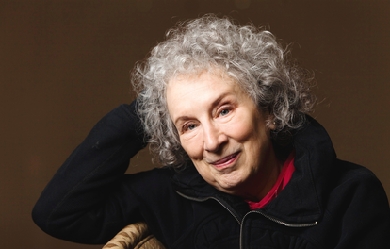
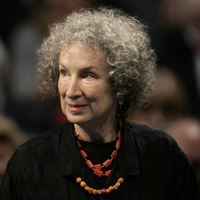
Margaret Eleanor Atwood (born November 18, 1939) is a Canadian poet, novelist, literary critic, essayist, teacher, environmental activist, and inventor. Since 1961, she has published 18 books of poetry, 18 novels, 11 books of non-fiction, nine collections of short fiction, eight children's books, and two graphic novels, and a number of small press editions of both poetry and fiction. Atwood has won numerous awards and honors for her writing, including two Booker Prizes, the Arthur C. Clarke Award, the Governor General's Award, the Franz Kafka Prize, Princess of Asturias Awards, and the National Book Critics and PEN Center USA Lifetime Achievement Awards. A number of her works have been adapted for film and television.
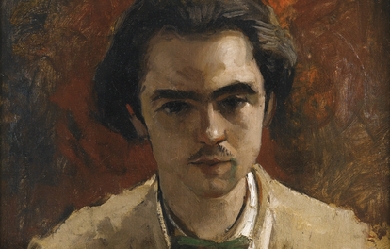
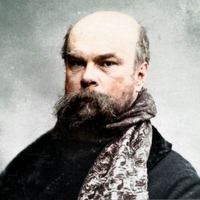
Paul Verlaine est un écrivain et poète français du xixe siècle, né à Metz (Moselle) le 30 mars 1844 et mort à Paris le 8 janvier 1896 (à 51 ans). Il s'essaie à la poésie et publie son premier recueil, Poèmes saturniens en 1866, à 22 ans. Sa vie est bouleversée quand il rencontre Arthur Rimbaud en septembre 1871. Leur vie amoureuse tumultueuse et errante en Angleterre et en Belgique débouche sur la scène violente où, à Bruxelles, Verlaine blesse superficiellement au poignet celui qu'il appelle son « époux infernal » : jugé et condamné, il reste en prison jusqu'au début de 1875, renouant avec le catholicisme de son enfance et écrivant des poèmes qui prendront place dans ses recueils suivants : Sagesse (1880), Jadis et Naguère (1884) et Parallèlement (1889). Usé par l'alcool et la maladie, Verlaine meurt à 51 ans, le 8 janvier 1896, d'une pneumonie aiguë. Il est inhumé à Paris au cimetière des Batignolles (11e division). Archétype du poète maudit, Verlaine est reconnu comme un maître par la génération suivante. Son style — fait de musicalité et de fluidité jouant avec les rythmes impairs — et la tonalité de nombre de ses poèmes — associant mélancolie et clairs-obscurs — révèlent, au-delà de l'apparente simplicité formelle, une profonde sensibilité, en résonance avec l'inspiration de certains artistes contemporains, des peintres impressionnistes ou des compositeurs (tels Reynaldo Hahn, Gabriel Fauré et Claude Debussy, qui mettront d'ailleurs en musique plusieurs de ses poèmes). Enfance Après treize ans de mariage, Nicolas-Auguste Verlaine et son épouse Élisa-Stéphanie Dehée donnent naissance, le 30 mars 1844, au 2 rue de la Haute-Pierre, à Metz, à un fils qu'ils prénomment Paul-Marie en reconnaissance à la Vierge Marie pour cette naissance tardive, Élisa ayant fait auparavant trois fausses couches. Catholiques, ils le font baptiser en l'église Notre-Dame de Metz. Paul restera le fils unique de cette famille de petite-bourgeoisie assez aisée qui élève aussi, depuis 1836, une cousine orpheline prénommée Élisa. Son père, militaire de carrière, atteint le grade de capitaine avant de démissionner de l'armée en 1851 : la famille Verlaine quitte alors Metz pour Paris. Enfant aimé et plutôt appliqué, il est mis en pension à l'institution Landry, 32 rue Chaptal, les enfants pensionnaires à Landry suivent leurs cours au lycée Condorcet. Paul Verlaine devient un adolescent difficile, et obtient finalement son baccalauréat en 1862. Entrée dans la vie adulte C'est durant sa jeunesse qu'il s'essaie à la poésie. En effet, en 1860, la pension est pour lui source d'ennui et de dépaysement. Admirateur de Baudelaire, et s'intéressant à la faune africaine, il exprime son mal-être dû à l'éloignement de son foyer, à travers une poésie dénuée de tout message si ce n'est celui de ses sentiments, Les Girafes. « Je crois que les longs cous jamais ne se plairont/ Dans ce lieu si lointain, dans ce si bel endroit/ Qui est mon Alaska, pays où nul ne va / Car ce n'est que chez eux que comblés ils seront ». Ce court poème en quatre alexandrins reste sa première approche sur le domaine poétique, même s'il ne sera publié qu'à titre posthume[réf. nécessaire]. Bachelier, il s'inscrit en faculté de droit, mais abandonne ses études, leur préférant la fréquentation des cafés et des cercles littéraires parisiens. Il s'intéresse plus sérieusement à la poésie et, en août 1863, une revue publie son premier poème connu de son vivant : Monsieur Prudhomme, portrait satirique du bourgeois qu'il reprendra dans son premier recueil. Il collabore au premier Parnasse contemporain et publie à 22 ans en 1866 les Poèmes saturniens qui traduisent l'influence de Baudelaire, mais aussi une musique personnelle orientée vers « la Sensation rendue ». En 1869, paraît le petit recueil Fêtes galantes, fantaisies inspirées par les toiles des peintres du xviiie siècle que le Louvre vient d'exposer dans de nouvelles salles. Dans la même période, son père, inquiet de son avenir, le fait entrer en 1864 comme employé dans une compagnie d'assurance, puis, quelques mois plus tard, à la mairie du 9e arrondissement, puis à l'hôtel de ville de Paris. Il vit toujours chez ses parents et, après le décès du père en décembre 1865, chez sa mère avec laquelle il entretiendra une relation de proximité et de violence toute sa vie. Paul Verlaine est aussi très proche de sa chère cousine Élisa, orpheline recueillie dès 183611 et élevée par les Verlaine avec leur fils : il souhaitait secrètement l'épouser, mais elle se marie en 1861 avec un entrepreneur aisé (il possède une sucrerie dans le Nord) ce qui permettra à Élisa de l'aider à faire paraître son premier recueil (Poèmes saturniens, 1866). La mort en couches en 1867 de celle dont il restait amoureux le fait basculer un peu plus dans l'excès d'alcool qui le rend violent : il tente même plusieurs fois de tuer sa mère. Celle-ci l'encourage à épouser Mathilde Mauté qu'un ami lui a fait rencontrer : il lui adresse des poèmes apaisés et affectueux qu'il reprendra en partie dans La Bonne Chanson, recueil publié le 12 juin 1870, mais mis en vente seulement l'année suivante, après la guerre et la Commune. Le mariage a lieu le 11 août 1870 (Paul a 26 ans et Mathilde, 17) ; un enfant, Georges, naît le 30 octobre 1871. Les références Wikipedia—https://fr.wikipedia.org/wiki/Paul_Verlaine

I started dabbling at age 13, and after a while, I was writing full poems, however, I only have poetry from when I was 16 and up. I am now 28, and I have found that it is so much easier to say things through poetry than it is to verbalize them. I draw inspiration for my poetry from writers, musicians, movies, daily interactions, my faith, and much more. As far as writers go, when I was younger I got introduced to Langston Hughes, and I have learned to take from his style of writing. I also enjoy some good old Shakespeare every once in a while. Most of my influence, however, comes from music; I draw my influence from genres that include but are not limited to, hip-hop, folk, rock, and country. Another thing that really impacts my poetry are events that have taken place in my life. Movie characters and themes also have a chance to have their fair share of influence in my poetry. I am a Christ-follower first and foremost, so, beneath most of my poems stories, there is a spiritual undertone. My plainly faith-based poems, however, are a written (hard) memory of the headspace that I was in at that time in my life. People can create all sorts of art without having to fabricate who they are, and without compromising who they are as a person; it's being able to take from other peoples experiences and write about them, based on the writer's interpretation, that can set a writer apart from others. I write mainly Free Verse poetry, because to me poetry is a lot of self-expression, and if I were to follow the set guidelines of a certain type of poetry, I would then be forfeiting my creative license. Sometimes, however, I like to take from certain styles of poetry, especially when I am trying to convey a particular emotion, for example, I not only write Free Verse but, I also have learned to take from styles, such as Blank Verse & Limericks. I have a friend who said this, "If there is one thing I have learned about writing over the years it is that the best work comes from writing without the audience in mind." I find this quote to be accurate for not only my writing but for writing in general. Love y'all!
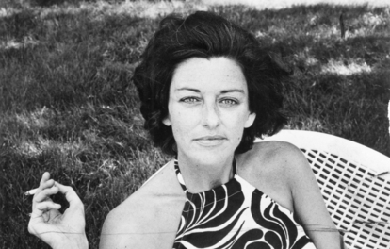
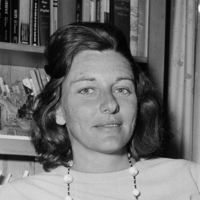
Anne Sexton (November 9, 1928, Newton, Massachusetts – October 4, 1974, Weston, Massachusetts) was an American poetese, known for her highly personal, confessional verse. She won the Pulitzer Prize for poetry in 1967. Themes of her poetry include her suicidal tendencies, long battle against depression and various intimate details from her private life, including her relationships with her husband and children. Sexton suffered from severe mental illness for much of her life, her first manic episode taking place in 1954.
▪️▪️▪️▪️▪️▪️▪️▪️▪️▪️ ▪️▪️▪️▪️▪️▪️▪️▪️ ▪️▪️▪️▪️▪️▪️ ▪️▪️▪️▪️ ▪️▪️▪️ ▪️▪️ ▪️ Finding my way with writing and poetry. 🪶The world makes more sense with poetry. Connect with me on: Tumblr: 1introvertedsage My Poetic Side: Introverted Sage All Poetry: Introverted Sage Substack: Introverted Sage
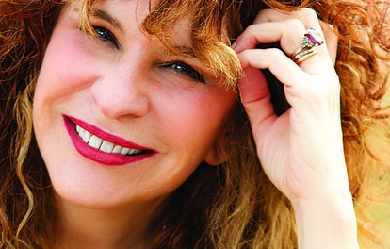

Gioconda Belli, Managua, 9 de diciembre de 1948, es una poetisa y novelista nicaragüense que goza de amplio reconocimiento internacional. Junto a Ernesto Cardenal y Claribel Alegría, inició la renovación de la poesía en su país. Un marcado acento erótico impregna buena parte de su obra, aunque la última producción denota una gran preocupación por los cambios políticos de su patria.
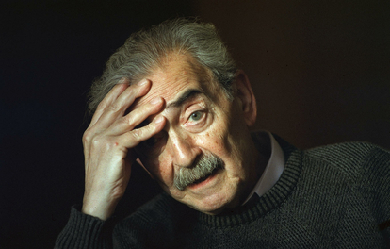
Juan Gelman (Buenos Aires, 3 de mayo de 1930 - México, D. F., 14 de enero de 2014) fue un prestigioso poeta argentino. Escritor desde su niñez, se desempeñó como periodista, traductor, y militante en organizaciones guerrilleras. Exiliado durante la dictadura militar iniciada en 1976, retornó a la Argentina en 1988 aunque se radicó en México. Buena parte de su vida y obra literaria se vieron signadas por el secuestro y desaparición de sus hijos y la búsqueda de su nieta nacida en cautiverio. Fue el cuarto argentino galardonado con el Premio Miguel de Cervantes, luego de Jorge Luis Borges, Ernesto Sabato y Adolfo Bioy Casares. Se lo considera uno de los grandes poetas contemporáneos de habla hispana, y un «expresionista del dolor». A su muerte, la Presidencia de la Nación Argentina decretó tres días de duelo nacional.
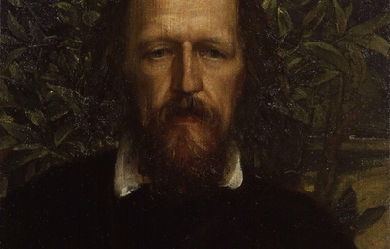
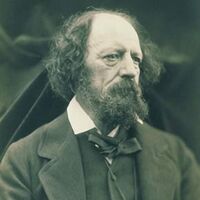
Alfred Tennyson, 1st Baron Tennyson, FRS (6 August 1809 – 6 October 1892) was Poet Laureate of the United Kingdom during much of Queen Victoria's reign and remains one of the most popular poets in the English language. A number of phrases from Tennyson’s work have become commonplaces of the English language, including “Nature, red in tooth and claw”, “'Tis better to have loved and lost / Than never to have loved at all”, “Theirs not to reason why, / Theirs but to do and die”, “My strength is as the strength of ten, / Because my heart is pure”, “Knowledge comes, but Wisdom lingers”, and “The old order changeth, yielding place to new”. He is the ninth most frequently quoted writer in The Oxford Dictionary of Quotations.
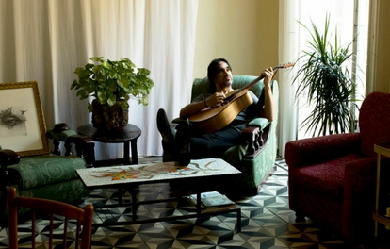
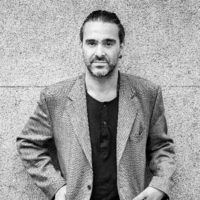
Pablo Sciuto (Montevideo, 1979) cantautor hispano-uruguayo radicado en España, dueño de un lenguaje poético que conjuga la metafísica y la astronomía, que vuelca en sus canciones. Creador incansable, capaz de beber de la cercanía de su admirado y coterráneo Mario Benedetti, como también fundirse en las leyes físicas y astronómicas de Stephen Hawking, bucear en la melancolía e intimidad de Alejandra Pizarnik y esconderse en las oscuridades del astillero de Juan Carlos Onetti. Ha compartido escenario y experiencias con artistas como Pablo Guerrero, Carlos Chaouen, Jorge Drexler, Gustavo Pena “El Príncipe” y Leo Minax con los que siente una conexión en el uso de la poesía para comunicar las más profundas emociones humanas, junto a los diversos estilos donde compone su peculiar música, entre jazz, bossa nova y candombe. Mencionado como autor destacado en el libro, “Y la palabra se hizo música: El canto emigrado de América Latina” (Fundación Autor, 2007) del prestigioso musicólogo español, Fernando González Lucini.
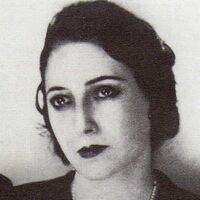
Juana Fernández Morales, cuyo seudónimo era Juana de Ibarbourou, conocida popularmente como Juana de América, (8 de marzo de 1892, Melo - 15 de julio de 1979, Montevideo), fue una poetisa uruguaya. El 10 de agosto de 1929 recibió, en el Salón de los Pasos Perdidos del Palacio Legislativo, el título de «Juana de América» de la mano de Juan Zorrilla de San Martín y una multitud de poetas y personalidades. Fue enterrada con honores de Ministro de Estado en el panteón de su familia del Cementerio del Buceo.


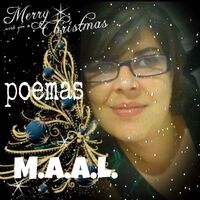




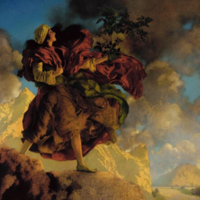
.jpg?locale=it)
